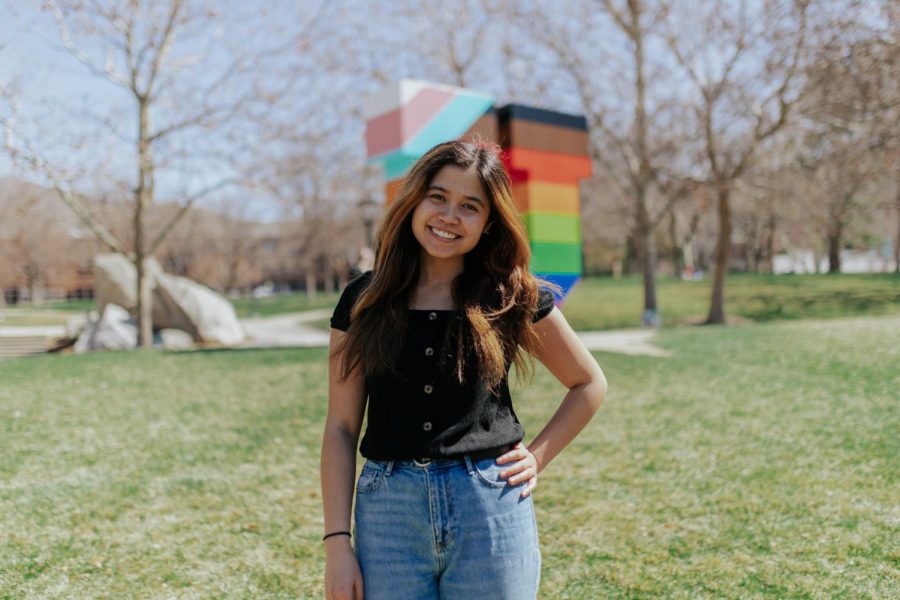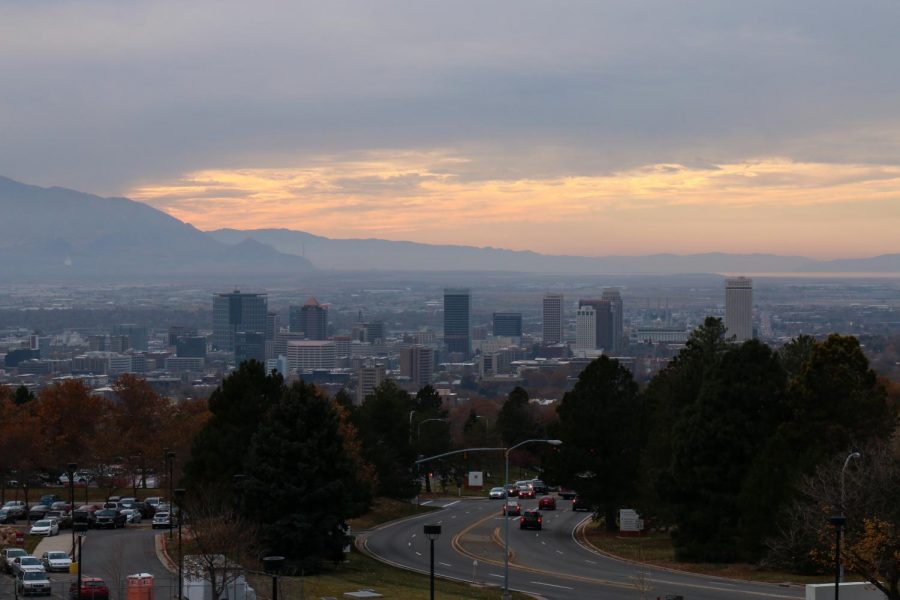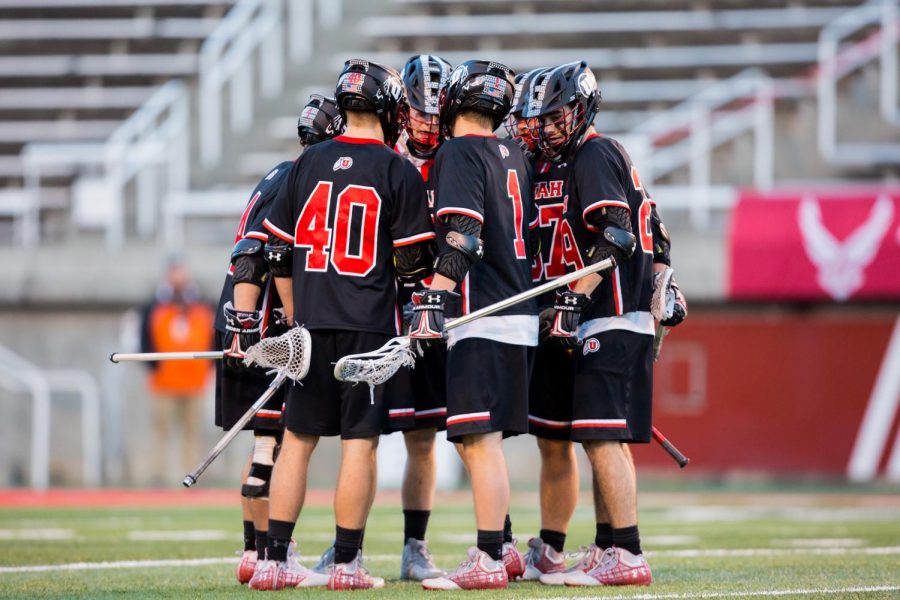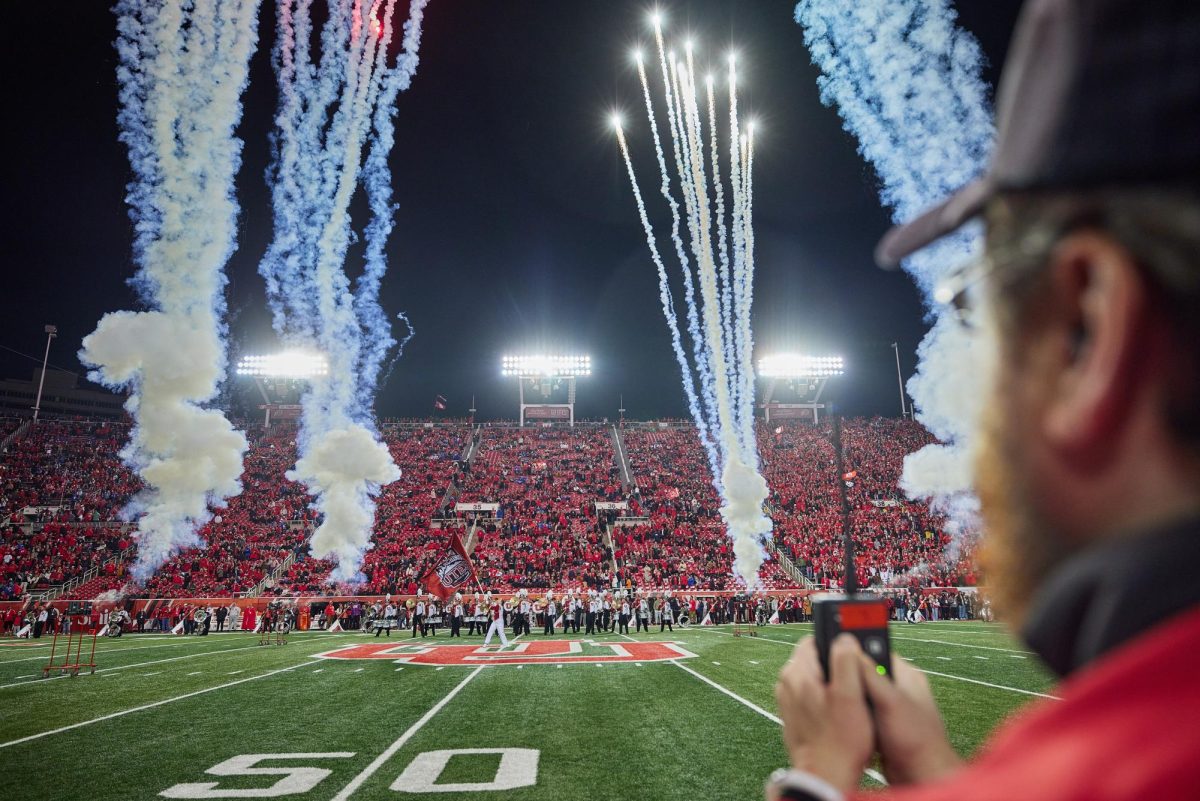Weglinski: AAPI Community, It’s Time to Talk Mental Health
Sonia Weglinski shares her experience as an Asian American. April 3, 2021 on campus in Salt Lake City (Photo by Maya Fraser | The Daily Utah Chronicle)
April 11, 2021
Growing up in an Asian household, I never had the “conventional” American youth experience. Both of my parents are immigrants, and I was raised primarily by my Filipina mother. Living in Utah came with unique hardships. From an early age, I learned how it felt to be different. My childhood mainly consisted of trying to fit in with my predominately white peers and holding my tongue at racist jokes poked at me. In middle school, when I suffered from severe depression and anxiety, I never confided in my parents or sought professional help. Instead, I struggled silently. My upbringing taught me to never show weakness, and I was ashamed and in denial of my feelings. Only recently did I finally have a difficult and uncomfortable conversation with my mom about finding me a therapist.
Unfortunately, I’m not the only one who has experienced this. Many of my Asian American and Pacific Islander friends have shared the same sad reality. In fact, Asian Americans are the least likely racial group in the United States to seek mental health care but are at a higher risk of suicidal ideation and attempting suicide. It’s time the AAPI community destigmatizes mental health. Especially in light of the pandemic and recent anti-Asian violence across the US, it’s more important than ever that we have honest conversations with each other about the harmful effects of shaming mental illness.
Many Asian immigrants to the US come from backgrounds rife with economic instability and trauma. Katherine Xie, a daughter of Chinese immigrants, wrote an article about her experience suffering from depression in an Asian household. Xie knew her parents weren’t dismissing her feelings out of spite, but it was more out of misunderstanding and how they were raised. “The world that had shaped them was neither nurturing nor particularly nuanced,” she wrote. “Their experiences were reinforced by an ironclad culture that encouraged stoic endurance and regarded mental illness as a weakness of character.” My mother had a similar story growing up in the Philippines. She made many sacrifices for my family and worked hard to establish herself in the US. Having a mother with this unique background made me feel grateful to her, but it also came with challenges. I invalidated my own struggles because they seemed so trivial compared to my parents’ experiences.
First-generation Asian Americans show their love in different ways but often neglect to have hard conversations about real issues, like mental health. And they don’t speak up about their experiences with racism and xenophobia, since this requires vulnerability — even if it means silently suffering. My mother has never talked about the racism she faces living here, but I’ve seen how people have treated her all my life. Once in elementary school, I convinced her not to show up to a parent-teacher conference because I was secretly afraid that my teachers and peers would make fun of her. And this was only the tip of the iceberg. In retrospect, these “normalized” incidences have made me realize that so many AAPI people struggle with racism and never discuss it. Thankfully, there are ways we can fight against these barriers, and it all starts with a cultural shift in how we view mental health. Rome wasn’t built in a day, but if we all work proactively toward destigmatizing this crucial conversation now, the coming generations will thank us.
Writing this personal piece is scary but necessary for both me and my community. I’ve gaslighted myself multiple times in the past and I’ve shied away from these vulnerable conversations, but I won’t do this any longer. It’s time to talk about mental health in the AAPI community. For far too long, we have been silent on this issue which disproportionately harms us. We need to engage in open-minded conversations about mental health that teach Asian Americans and Pacific Islanders mental health empowerment — not shame.












